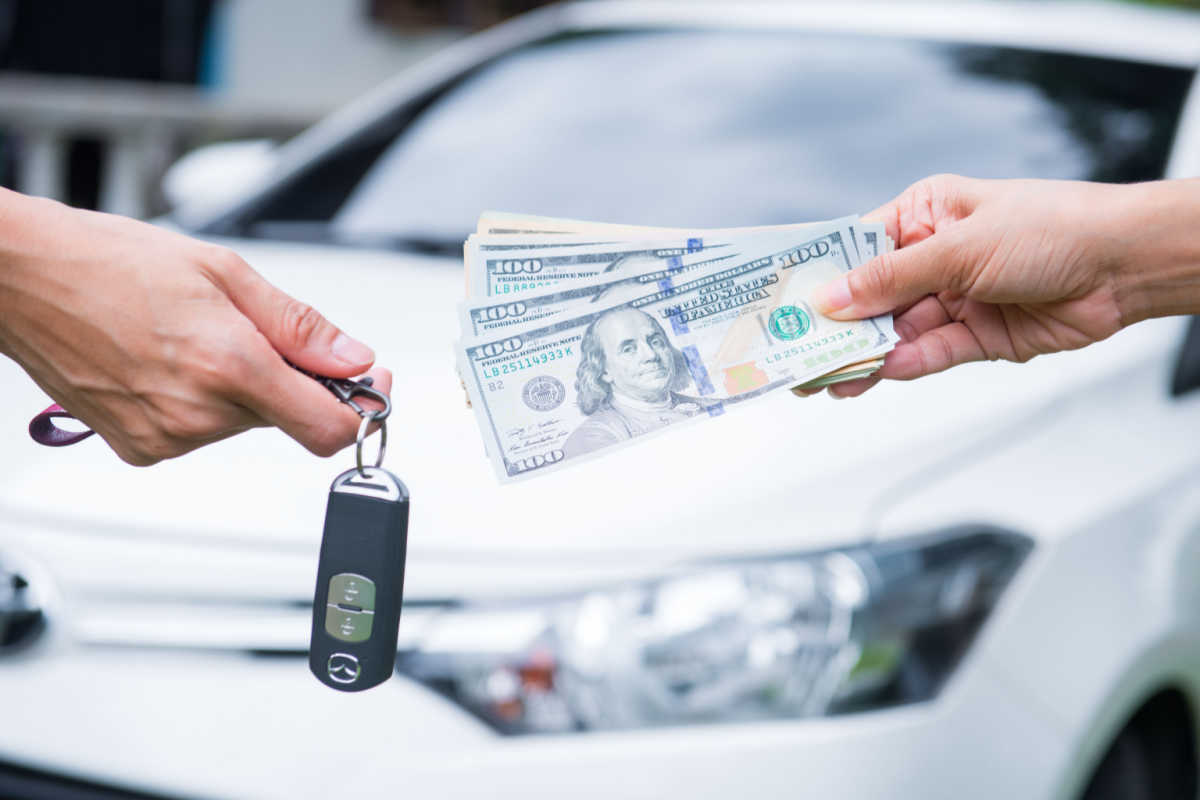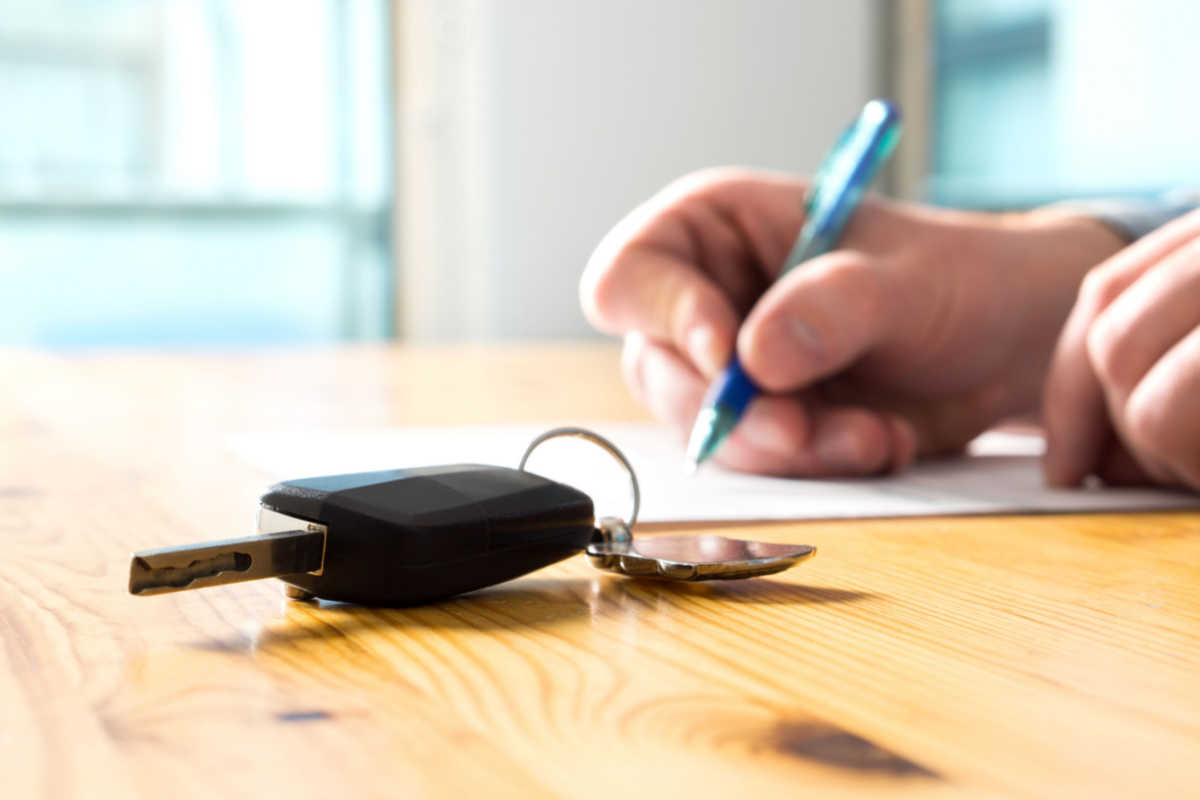Can I Pawn My Car and Still Drive It?
- Car pawning allows fast access to funds for financial emergencies
- Pawning your vehicle doesn’t necessarily mean you can’t drive it
- However, you’ll lose your vehicle if you can’t repay the borrowed amount
Can you pawn a car? Yes. Mostly, consumers choose this funding option when they need fast access to cash to pay for unexpected expenses.
Federal, state, and local laws may govern these transactions. For example, your state’s Department of Justice may regulate pawnshops in your area.
Let’s reveal the specifics of a car title pawn, its advantages and disadvantages, and how you can drive your car while pawning it.
What Is a Car Title Pawn?
A car title pawn allows you to access emergency funds against the vehicle you bring in as collateral. Specifically, the pawnshop will appraise the car’s value and may offer you cash if you qualify.
 According to the National Pawnbrokers Association, the average amount borrowers typically receive from their local pawnshops is approximately $150. Some lenders may offer qualified borrowers 25% to 50% of the car’s appraised value.
According to the National Pawnbrokers Association, the average amount borrowers typically receive from their local pawnshops is approximately $150. Some lenders may offer qualified borrowers 25% to 50% of the car’s appraised value.
You can pay off the loan in monthly installments with interest or as a lump sum after 15 to 30 days. If you default, the pawnshop will call you to verify if you’re repaying the amount.
If you can’t pay back the money, the pawnshop will repossess your vehicle and then sell it to recover the pawned amount. According to the National Pawnbrokers Association, 85% of customers repay the loan and get their items back from pawnshops.
Pawnshop Interest Rates
Interest rates vary from state to state and are usually higher than those of other loan types, such as traditional bank loans. Moreover, pawnshop loan interest rates differ from shop to shop.
Can I Pawn My Car Title Online?
“Can you pawn a car online?” is one of the top questions. You can do your homework to find a pawnshop allowing borrowers to start an online application. Car title applicants can begin the process online by submitting their personal and financial documents.
However, lenders usually require you to apply in person. The reason is that the lender needs to verify the car’s title, inspect the vehicle, and appraise it in person.
What Exactly Do I Have to Do to Pawn My Car Title?
“How to pawn a car title?” is one of the top questions people are interested in. When applying, you’ll be required to submit a title loan request and provide the following:
- Your valid driver’s license or ID
- Proof of income
- Residence proof, such as utility bills
- The title to the vehicle you’re pawning and proof of ownership. Importantly, if you’ve used an auto loan to purchase the vehicle, you should pay it off
- Photos and an inspection of the vehicle
If you want to improve your credit score to increase your chances of approval, you can take specific steps. Namely, these steps may include paying your bills on time and disputing inaccuracies on your credit report.
When Should I Pawn My Car Title?
“Can you pawn a car?” isn’t the only essential question. Do you know when you should pawn your car? Typically, pawning your car’s title should only be done as a last resort because of its high-interest rates and short repayment terms.
Moreover, if you default on the amount, the pawnshop has the right to repossess your vehicle and sell it to recover the amount borrowed.
Therefore, before pawning your car, consider other financing alternatives, such as borrowing from family or friends.
Car Pawn Requirements
A car title indicates the legal owner of the vehicle. Specifically, the Department of Motor Vehicles (DMV) in your state or the Department of Transportation issues it when you purchase the vehicle.
Pawning a Title vs. Title Loan
People often ask, “What is title pawning vs. title loans?” In most cases, these terms are interchangeable.
- Both title loans and pawning your title require the applicant to pass a credit inquiry before receiving any funding. If you’re approved, you’ll give the lender your car title. Additionally, your application is recorded on your credit history, and if you have late payments, they’ll hurt your credit.
- Though you can still drive the car, some lenders will install a GPS device to track your vehicle. And they may also make a copy of your keys. The purpose is to repossess your vehicle if you default on the loan.
- You may get 25% to 50% of your car’s appraised value. According to the Federal Trade Commission (FTC), the average amount you can borrow is $100 to $5,500. However, some lenders may offer up to $10,000.
- The average repayment period is 30 days. However, it can be for up to a year.
- The interest rates are high for an auto pawn. The reason is that pawning a title requires more administrative effort to inspect the car, issue the loan, and repossess the vehicle.
- Apart from losing your vehicle if you default, you may also incur fees and additional costs for storage, insurance, or renewing your loan term.
Pros and Cons of Pawning a Car Title
When considering pawning your car as a funding option, weigh its pros and cons to make an objective decision.
 Benefits
Benefits
Here are the main benefits of pawning a car title:
- An option for those who can’t access traditional bank loans or lines of credit
- Access to fast cash, sometimes in as little as one week
- Funding is based on the amount of equity in your vehicle
- Based on the lender, you may still be able to use your car
Negative Aspects
It’s not enough to answer the question, “Can you pawn a car?” Also, look at the disadvantages of a car title pawn.
- High-interest rates, often ranging from 20% to over 200%, and usually accompanied by service fees
- The pawnshop will repossess your vehicle (often very quickly) if you default on the loan
- If approved, you may only borrow up to 50% of your vehicle’s value
- Short repayment period. So, if you aren’t careful, you could eventually pay a hefty interest amount and still lose your collateral
Can I Still Drive My Car if I Pawn It?
“Can you pawn a car and still drive it?” is the top question you may have if you’re considering this financing option. Ultimately, it depends on the lender you pick.
Some lenders will allow you to continue driving your car even though you pawn it. However, others will take possession of the vehicle until you repay the full loan amount, including interest.
However, if you default on your title loan, the lender will likely repossess your vehicle and sell it to recoup their losses.
Sum Up
The answer to “Can you pawn a car?” is “Yes.”
Specifically, people pawn a car to get fast access to cash.
In addition, you can pawn your car and still drive it based on the lender. However, if you default, the pawnbroker has the right to own your property. So, be sure you can pay high-interest rates and repay the loan within a short period.





